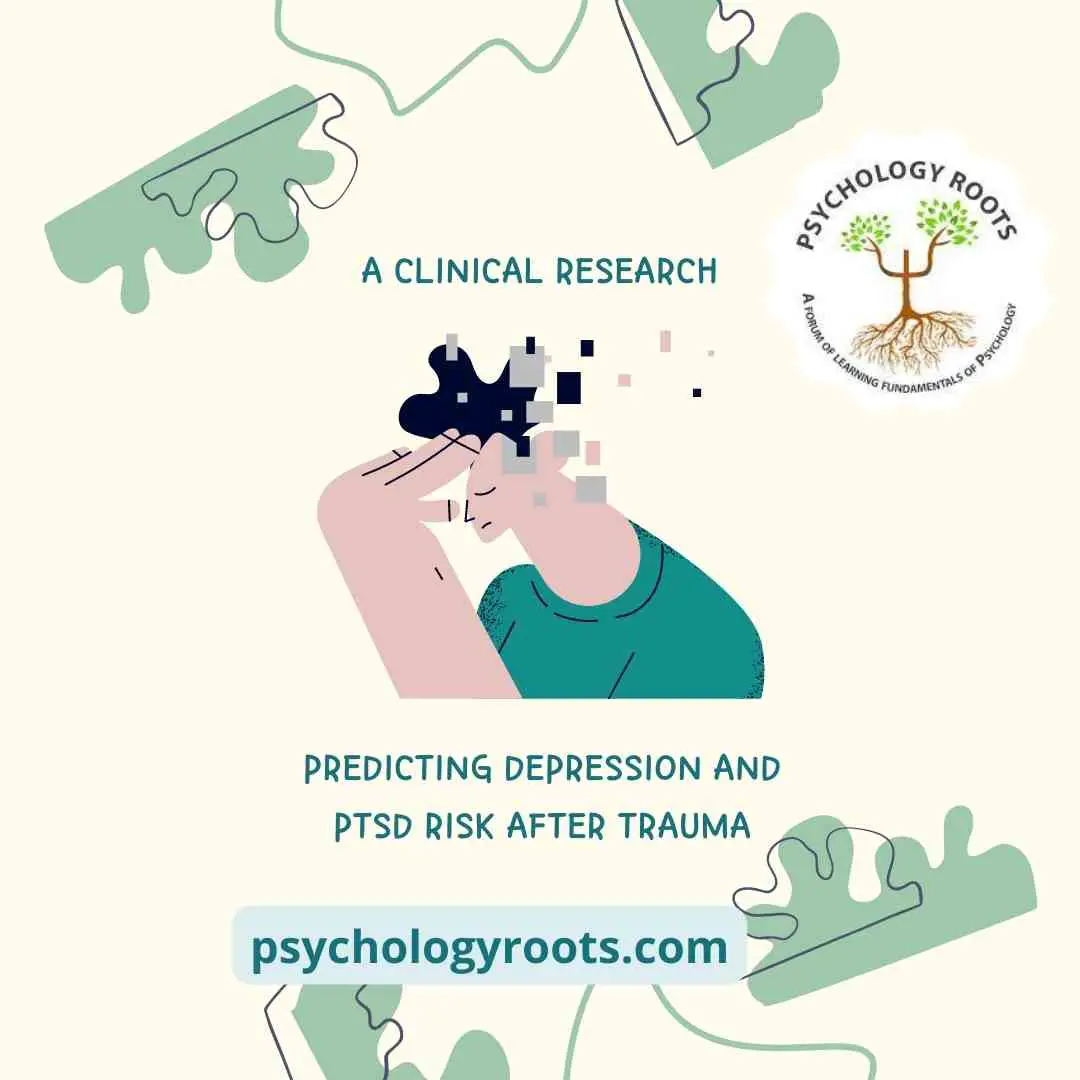Table of Contents
Predicting Depression and PTSD Risk After Trauma: A Clinical Research
Here in this post, we are discussing “Predicting Depression and PTSD Risk After Trauma: A Clinical Research”. You can read more about psychology-related material on our website. Keep visiting Psychology Roots.
Research Spotlight
Patients who have had a severe injury are more likely to suffer from mental health issues such as depression and PTSD (PTSD). The early detection of depression and post-traumatic stress disorder (PTSD) risk while under the care of a trauma service is critical to the patient’s rehabilitation.

Predicting Depression and PTSD Risk After Trauma: A Clinical Research
Predictive screenings may be used to identify those wounded individuals who are most likely to develop post-injury depression or post-traumatic stress disorder (PTSD). Following a severe injury, those patients most at risk of developing substantial depression or PTSD may be identified, and resources and treatments can be tailored to meet their specific needs.
One of the nation’s most heavily traumatised populations, urban Black men in the United States, has been the subject of a groundbreaking study led by the University of Pennsylvania’s School of Nursing (Penn Nursing) and the Penn Injury Science Center that examined the performance of two predictive screeners.
It has been shown that the Penn Richmond Screener and the Posttraumatic Adjustment Scale (PAS) may accurately predict the onset of depression and/or post-traumatic stress disorder (PTSD) in the future. These results may imply that risk factors for harmful psychological repercussions of severe injury may be comparable across groups and nations..
We can now identify those patients at most risk for poor mental health outcomes over the course of acute trauma therapy, thanks to our findings.” According to Therese S. Richmond, PhD, RN, FAAN, Andrea B. Laporte Professor of Nursing at Penn Nursing and Associate Dean for Research & Innovation, the study’s lead investigator and trauma programmes’ principal investigator, this allows trauma programmes to target patients most likely to benefit from follow-up assessments for the appearance of these disorders.
“Comparison of Two Screeners Predicting the Future Development of Depression and Post-traumatic Stress Disorder in Black Men After Serious Injury” has been published in the journal Injury. The article may be found on the internet. Trina Kumodzi, PhD, Laura Vargas, PHD, Nancy Kassam-Adams, PhD, and Patrick M. Reilly, MD, all from the University of Pennsylvania Perelman School of Medicine, are the authors of the paper.
The National Institute of Nursing Research (NINR) provided funding for the research stated in this article (PI: Richmond). In part, the National Institute of Child Health & Development sponsored Dr. Kumodzi’s research under Grant Number R24HD087149 (PI: Cunningham).
[bookly-form category_id=”1″ service_id=”1″]
Help Us Improve This Article
Have you discovered an inaccuracy? We put out great effort to give accurate and scientifically trustworthy information to our readers. Please notify us if you discover any typographical or grammatical errors.
Make a comment. We acknowledge and appreciate your efforts.
If you have any scale or any material related to psychology kindly share it with us at psychologyroots@gmail.com. We help others on behalf of you.